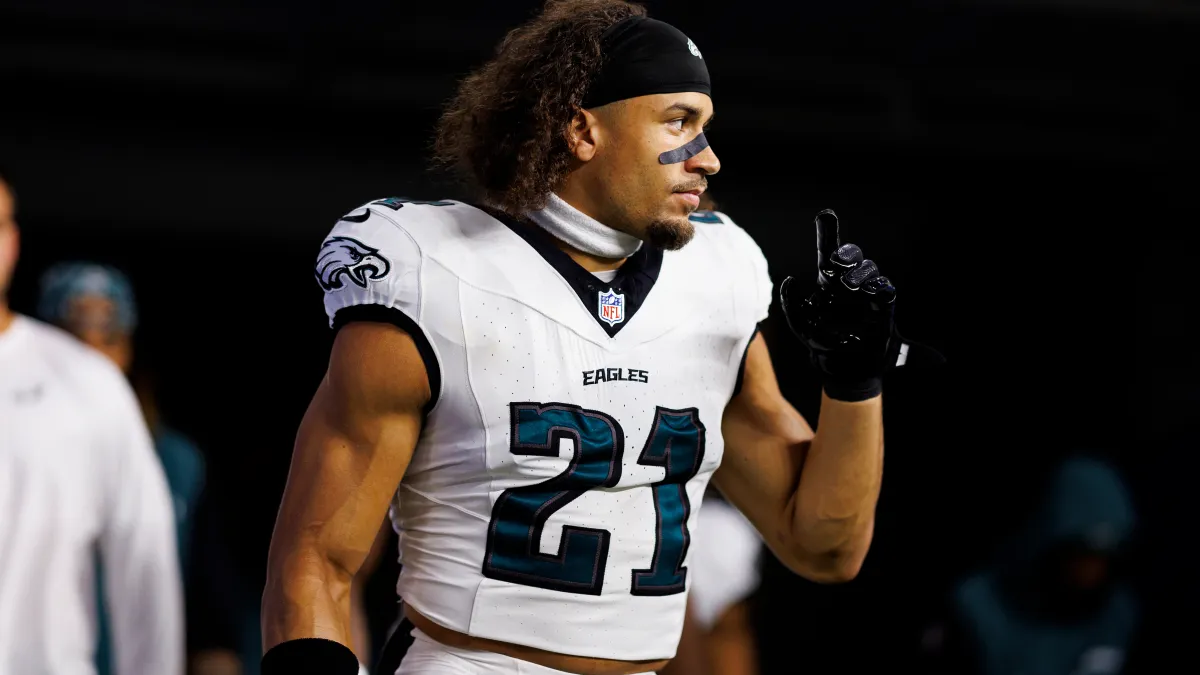Fitness
Is Emma Raducanu’s Fitness Coach Another Stopgap Measure?

LONDON, ENGLAND – JULY 07: Emma Raducanu of Great Britain reacts as she suffers with an injury as … [+]
Emma Raducanu is changing things up again. The 22-year-old has brought in renowned fitness coach Yutaka Nakamura, who has previously helped Maria Sharapova and Naomi Osaka in their Grand Slam pursuits. It is a bid to create a physique that can add to a body of work constantly framed around a famous fortnight in Flushing Meadows three years ago.
“I think it’s a big strength of mine that I have nowhere near fulfilled. I think I can become one of the best athletes out there in tennis and I’m just looking forward to seeing how much I can do,” said the 2021 U.S. Open winner. As welcoming speeches go, Raducanu was exceptionally positive about the Japanese who will be with her “pretty much most weeks of the year.” Judging by the amount of coaches that go out of the revolving door, that was quite the commitment.
In many ways, the appointment makes perfect sense. Since the fairytale of New York three years ago, her upward trajectory has been grounded by injuries.
Historically, the Briton’s physique had been a vulnerable spot during her junior career all the way through to her senior highs and lows. She missed eight months of 2023 with surgery on her wrists and left ankle. Despite this, her astonishing rise carried sponsor power without a racket. Those magical weeks in the Big Apple were a dream scenario. Winning ten tennis matches in a row meant she didn’t have to come up with a strong sequel to make top dollar away from the court.
The victory over Leylah Fernandez on Arthur Ashe was beautiful for its innocence and insouciance. That can’t sustain the cycle of a season that never stops for breath. Raducanu had shown signs of frailty at Wimbledon when she reached the fourth round before pulling out with a medical issue against Ajla Tomljanovic. There were already signs that the physical output was struggling to keep up with the steel frame and engine power needed to compete.
Nakamura has walked into a dynamic situation. Raducanu’s career is still in its stop-start infancy, but the expectations and impatience for results appear to be clashing There’s a restlessness about her thinking that often zips from one idea to another. Raducanu has a high turnover of coaches and hasn’t been afraid to challenge them. “I ask my coaches a lot of questions. On certain occasions they haven’t been able to keep up with the questions I’ve asked and maybe that’s why it ended,” she said in 2023.
The World No.58 has a huge independent streak. She can use her power of one to call the shots. There has always been a sense that family Raducanu do it their way but the shotgun success of a major as a relatively unknown 18-year-old has brought all the ways and means into the global eye. It’s what happens. Boris Becker once questioned why Judy Murray went everywhere with son Andy in 2011. Within a couple of years, Murray had won two Slams and it was never spoken of again.
By winning a major from nowhere, Raducanu has almost unlimited credit. It’s arguable that her teenage success has closed off more sage advice because the trophy came when her profile was under the radar. Tennis used to be fun, not a job. There’s something jarring about claiming to be “the best athlete out there” given that a more immediate need is to have a clean year on tour first without breaking down.
At the beginning of January, she sounded convinced that success would come: “I think my level, to be honest, is just too good not to come through if I put consistent work together.” That’s a throwaway line which still suggests that she knows how to put results together. In the three years since the U.S. Open, the British No. 2 has reached one semi-final.
“To know more about the player, we need to move closer to them. That’s why if you have the skills to understand an athlete and the power to polish those skills, they can become powerful tools as a trainer,” Nakumura told the Japanese national daily, Mainichi in 2020 . Will Raducanu form that kind of relationship? It is telling that she has gone back to her childhood coach Nick Cavaday after trying five other coaches in two years. Relationships with those originally outside the circle haven’t tended to last.
NEW YORK, NEW YORK – SEPTEMBER 11: Emma Raducanu of Great Britain celebrates winning match point to … [+]
After losing to Sofia Kenin in the first round at Flushing Meadows in August, Raducanu hinted at internal differences when she aimed to “manage my schedule differently.” There’s a desperation to find a routine that works, to move the narrative on from that one fine day. Her work ethic is not in question. Her stubbornness can be a strength, but creates a blind spot in strategic planning.
“At the end of the day, you’re out there on your own and you have to be your own coach on the court,” Raducanu mused in the month after her greatest triumph. How far can she push her body, or, more importantly, be pushed? It’s not all on her racket.








